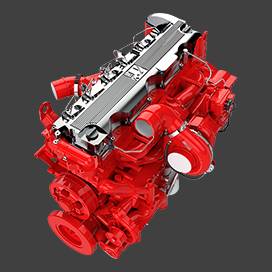Nov . 07, 2024 11:45 Back to list
Do Brake Drums Have a Limited Lifespan and When Do They Need Replacement
Do Brake Drums Wear Out?
When it comes to vehicle safety and performance, one key component that often goes overlooked is the brake system. Within this system, brake drums play a critical role, particularly in vehicles that use drum braking systems. Understanding whether brake drums wear out—and how this affects the overall performance of your vehicle—is essential for maintaining road safety and ensuring optimal braking performance.
What Are Brake Drums?
Brake drums are cylindrical components that house the brake shoes. When the brake pedal is pressed, hydraulic pressure forces the shoes outward against the inner surface of the drum, generating the friction needed to slow down or stop the vehicle. Due to their design, brake drums are particularly common in older vehicles and some light-duty trucks. Although modern vehicles now favor disc brakes for their efficiency and performance, drum brakes still have their place in the automotive world.
Do Brake Drums Wear Out?
Yes, brake drums do wear out over time. Several factors contribute to this wear and tear
1. Friction Material Breakdown The brake shoes are coated with friction material that gradually wears down each time the brakes are applied. As this material wears away, it can lead to increased heat generation, which in turn can cause the brake drum itself to heat up. Over time, this can cause the drum to warp or develop grooves.
2. Heat Cycling The brake system experiences significant temperature fluctuations due to the heat generated during braking. Continuous heating and cooling can weaken the structural integrity of the brake drums, leading to cracks or other imperfections.
3. Corrosion Brake drums are typically made of cast iron or aluminum, materials that can be susceptible to rust and corrosion, especially in areas with high humidity or frequent exposure to road salt and moisture. Corrosion can cause the surface of the brake drum to deteriorate, decreasing its effectiveness.
4. Improper Installation If brake drums are not installed correctly, they may wear unevenly. Factors such as misalignment or using the wrong size drum can lead to abnormal wear patterns, potentially compromising braking performance.
do brake drums wear out

5. Driving Conditions The way a vehicle is driven can significantly influence brake drum wear. Frequent stops, heavy loads, or aggressive driving can accelerate wear and tear on brake components, including the drums.
Symptoms of Worn Brake Drums
Recognizing the signs of worn brake drums is vital for safety. Some common symptoms include
- Unusual Noises If you hear grinding, squeaking, or a thumping noise when applying the brakes, it could indicate that the brake shoes or drums are worn and may need replacement.
- Vibrations or Pulsations If you feel vibrations or pulsations in the brake pedal when stopping, this may suggest that the drums are warped or damaged.
- Decreased Braking Performance A noticeable decrease in stopping power, or the need to press the brake pedal harder than usual, can indicate that the brake drums are unable to function properly.
Maintenance and Replacement
To ensure that brake drums last as long as possible, regular maintenance is essential. This includes routine inspections, replacing brake shoes as needed, and resurfacing the drums if they have become warped or grooved. Over time, however, even well-maintained brake drums will eventually reach the end of their service life and will need to be replaced.
In conclusion, brake drums do indeed wear out, and their condition is crucial for safe vehicle operation. If you experience any symptoms of worn brake drums, it is important to have them inspected by a professional mechanic. Taking proactive steps to maintain your brake system not only enhances your vehicle's performance but also ensures the safety of everyone on the road.
-
Brake Drum Man - High-Quality Drum Brake Drums & Brake Shoes for Reliable Performance
NewsJun.24,2025
-
High-Quality Brake Drum Kamaz – Durable Drum Brake Drum & Brake Shoe Replacement
NewsJun.10,2025
-
High-Quality Brake Drum Liza for Drum Brake Systems - Superior Durability and Performance
NewsJun.10,2025
-
High-Quality Brake Drum Kamaz – Durable Drum Brake Drum & Brake Shoe Solutions
NewsJun.10,2025
-
Durable Kamaz Brake Drums High-Performance Truck Parts
NewsJun.09,2025
-
Premium Brake Drum Maz Kit with Shoes Enhanced Braking
NewsJun.09,2025
